Chris Larsen, cofounder and executive chairman of Ripple, a cryptocurrency company, has the Midas touch when it comes to making money and giving consumers more autonomy over theirs. In the mid-’90s, Larsen cofounded E-Loan, an online mortgage company, the first to allow consumers to access their FICO scores for free — a tool used by many lenders to determine if a person qualifies for a credit card, a mortgage or another loan. A decade later, he cofounded Prosper Marketplace, the country’s first peer-to-peer lending platform.
And like other Bay Area tech moguls — think Marc Benioff, Mark Zuckerberg, Sergey Brin, to name a few — Larsen is investing some of that hard-earned money back into the community. He made local and national news when he funded hundreds of high-tech surveillance cameras scattered throughout the City to help fight crime. He has financed TV ads to recruit police officers; provided grants to merchant associations to enliven retail corridors; and with his wife, Lyna Lam, and the Rippleworks Foundation, contributed $25 million to San Francisco State University, his alma mater. And just last month, Larsen and Gap board member Bob Fisher helped launch a $4 million advertising campaign — It All Starts Here — to help boost San Francisco’s tarnished reputation.
Larsen was born in San Francisco to a father who was an aircraft mechanic at SFO and a mother who was a freelance illustrator. He spent most of his childhood in Cupertino until he moved back to the City to get his B.S. from SF State. After graduation, he worked for Chevron and later earned an M.B.A. from Stanford University.
Recently, I sat down with the mild-mannered Larsen at his Ripple offices in the FiDi. We talked about transforming global finance, climate change and his unwavering belief in his hometown.
Meet Chris Larsen.
Tell me about this company, Ripple. Sure. So, we’re using blockchain technology. It’s one of the core technologies of where the world is going. Essentially a second internet, but instead of an information internet, it’s an internet of value. We think that’s a critical component if you’re really going to have a globalized world that works well for everybody.
That makes sense. Obviously, the whole world’s connected through data. There’s some issues there, but it’s brought the world together. People communicate for free anywhere. But with money — you wire money to Europe or to the Philippines — it can take multiple days. It’s incredibly expensive, and access is still blocked for billions of people in the world. So you have an incomplete global infrastructure. ... We’re making global payments that can move in seconds instead of days with no failure rates and extremely low costs so everybody can participate.
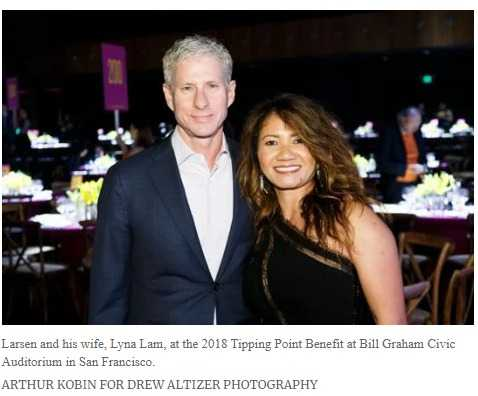
What was the origin of Ripple? Well, I go back now over 10 years, which is pretty early in the crypto markets. There was a group of people way smarter than me [who], when bitcoin got launched — in ’09 [and] caught on by 2011 — were fascinated by it, but thought it was too wasteful. It was kind of a head scratcher on why it had to be designed in a way that used so much electricity [due to the energy-intensive process of verifying computerized transactions]. So they felt they could build a better bitcoin in a system that used de minimis amounts of energy. And that’s what they did. I joined that project — before it was a company — in 2012 and went from there.
The industry has changed a lot in the last decade, I’m sure. And we’ve certainly seen dramatic volatility in the market in recent years. It’s a wild thing for a lot of reasons. It’s actually the first time fintech is global. Blockchain is, again, kind of a second internet, but for value. It’s global, it’s everywhere. That introduces a lot more dynamism. And it’s also dealing with money and value. So I think anytime you have that, you’re going to get the usual cast of characters as we read about in the press every day. Crazy characters, crooked characters, but also people doing some really groundbreaking work that will make things like remittances, cross border payments, and really the entire global economy work more efficiently. And that’s good for everybody.
Lots of eyes are on the trial of former crypto-billionaire Sam Bankman-Fried. What effect have his alleged crimes had on the industry? Oh, it was absolutely catastrophic. Not only because what he did was obviously wrong, but he was so political. He must have given $50 million, mostly to Democrats. And his mom [Barbara Fried] ran Mind [the] Gap [pro-Democratic super PAC]. So I think they were pretty skilled at politics. When it blew up, all these politicians that were in his corner had to almost overcorrect and back away. A number of bills would have given the U.S. market clarity, which is something the U.S. drastically needs because we’re really falling behind places like the UK, which has very clear, very pro-consumer, pro-innovation rules. Singapore ... Dubai ... same thing. Very pro-consumer, tough rules, but very clear rules. And they’re attracting all of the companies that should be right here.
So the U.S.’s lack of clarity, and then Sam’s screw-up, which then made that worse, has actually been really bad for San Francisco.
How so? Because San Francisco was actually the global blockchain capital of the world from the beginning through maybe five years ago. And it isn’t anymore. Coinbase was here just down the street. They’re not here anymore. So, I don’t know, we’re at a 30 percent vacancy rate [in the downtown area]? I think it would be half that. [Ripple is] growing. We have 15 offices around the world. We’ve doubled our London office in the last two years. That’s a shame. That should all be right here.
Let’s talk a little bit about AI because San Francisco is, for all intents and purposes, the AI capital of the world right now. How do we make sure AI doesn’t leave SF, similar to what happened with blockchain? I think it should be a lesson learned on what happened with blockchain. I love our leaders around here, but our leaders should have done more to fight for it. We can be pro-consumer, and we can embrace innovation, and that’s good for the state, it’s good for the City, it’s good for everybody. Instead of push[ing] it out to our competitors. So I hope with AI, people have gotten this.
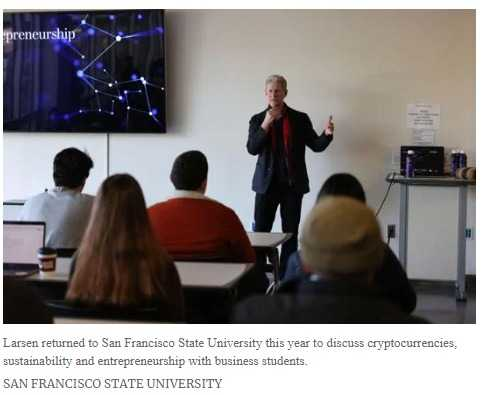
Clearly, we need regulation, but it seems we need to regulate in a more creative and modern way than we did decades ago. Do you agree? That’s a great point. ... Regulation has got to be faster. It’s got to be more balanced ... embracing innovation, which always has an element of uncertainty. So you have to respond quickly. I think in the U.S. we have a particular challenge. We go to London or Singapore or Dubai, the advantage they have is the regulators, the capital market folks, and the innovators are all in the same city. So they all mix. And here we’ve got capital markets in New York generally, you’ve got regulation in D.C., and you’ve got innovation out here. And that doesn’t mix all that well. It’s too far, and the timelines are not in sync. That’s a real challenge here. So we’ve got to get more dialogue. It’d be nice to put fintech regulators, AI regulators, at Stanford or Berkeley or right here in the City.
Before Ripple, you cofounded E-Loan and Prosper Marketplace, all of which give consumers more agency over their own money and more transparency. Was that a mission of yours, or just a good business niche? When I was growing up, my dad was an aircraft mechanic at SFO. I just remember he was always really angry every time he had to go take out a home equity line or finance a car. I think he felt like he was taken advantage of. The motto of the finance industry, particularly pre-internet, is “in confusion there’s profit.” When you go to the car dealer, the car dealer is not telling you your credit score. … So what does that mean as far as price? That’s how they make their money. And that’s not right. So it is a little bit of “Schwabifying” because Charles Schwab was the first to introduce fair pricing before the internet. But I think with the internet you can do much more of that because you can show everything. You take out the commission person. Ripple’s a little bit different in that we’re enterprise, and we can actually have more impact by focusing on the technology, bringing it to existing platforms, and then that makes them more competitive and more effective. So it’s a bit of a tweak.
I’ve read about Ripple using blockchain to help poor populations, like farmers in Uganda, sell carbon credits at a fair price. Talk about how consumers benefit from this technology. The remittance flows on the planet are enormous. U.S. to Philippines, Saudi Arabia to Bangladesh, for example. Those are big flows, and those are generally people who are probably living paycheck to paycheck, if even that. So if you can have systems that allow prices to come down, have more access, that’s going to be a good thing for everybody. We like those kinds of things. You raise the farmer and the carbon. I like that you brought that one up. I think that is a real opportunity.
Farming could actually be a huge sink for carbon. The Global South farmers are subsistence, so wouldn’t it be awesome if [they] could change the way [they] work the soils, grab more carbon, and then if there’s a good effective market [with] transparency ... if [the carbon credits are] resold, they get a cut of the resale. That’s something you can do really well with blockchain technology — tokenizing carbon assets. We actually just launched something called Centigrade, which is a B Corp, a more benefit corporation. We did that with [green energy nonprofit] Rocky Mountain Institute to improve the voluntary carbon credit markets.
That’s actually happening now? Yeah. That’s a big goal for us. Climate’s a big focus that I work on personally, but also with the company. And there’s lots of ways we can use the technology to make that better. Same with sustainability credits, which I think will also be an emerging market. So not just carbon. This is actually happening to a small country called Niue. It’s a country of 1,200 people in the South Pacific, but they have an enormous ocean acreage that’s part of the country. The same with Palau, 20,000 people, but they have oceans the size of France. So these are huge opportunities to protect the oceans. But these are poor countries. They can’t just give up all their fishing rights because they’ll go broke, but maybe they can do sustainability credits, where now we put that on a blockchain, tokenize it, and then anybody in the world can buy a sustainability credit. That’s what Niue’s doing. It’s called ocean conservation commitments. And that’s potentially a great source of financing sustainability.
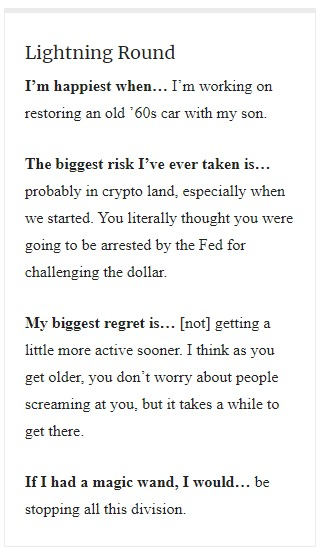
Aside from your business endeavors, you’re also very active in philanthropy and politically active in your hometown of San Francisco. Why is that important to you? In San Francisco, we just started going down the rabbit hole. We [were], I think probably like every San Franciscan, victims of the smash-and-grab problem. We live in Russian Hill right by the Lombard Steps, which was literally ground zero at one point. This was maybe seven years ago; [now president and CEO of the Hotel Council of San Francisco] Alex Bastian used to work for [District Attorney] George Gascón, and they had done something creative with Union Square — the Union Square BID [Business Improvement District] — [putting] camera networks all around. They had smash and grabbers, a crew that was running in the stores and stealing … but the camera networks are effective. If you talk to the police, they’re really good at making cases. We talked to the DA, same thing. It’d be nice if we can extend that now to live access for the police. That’s been controversial, but they put a police officer on top of that building, they have access. I don’t really understand why that’s controversial. You could put AI tools in that would identify guns. That already works today.
So there’s a lot of things we can do. We like the camera network for public safety. We’ve got to do more with the police because we have a police crisis where you don’t have enough of them. That’s a nationwide problem, but it’s worse here in the City because of the very anti-police police commission, which has prevented tools from getting out there. ... So the morale is bad. Maybe only 20 percent of San Francisco cops live in the City anymore. A lot of them actually live out of state, believe it or not.
Out of state? Out of state. So they’re supposed to be able to get back in the City within four hours of an emergency. That’s just not going to happen. So you’ve got a real problem with public safety resources that’s very solvable, so that’s one big area. And then another area has been trying to help small business through having [Avenue] Greenlight, which is supporting the 34 merchant districts in the City, and then allowing small grants to go to those small businesses or to the district to do things like lighting or signage or cleaning things just to make the environment better for these small businesses [that] have been hanging on in some tough times. Although I think things are a lot better now.
San Francisco has an almost $14 billion annual budget, and you’re talking about privately funding cameras in neighborhoods, helping small businesses and our retail corridors. You have even paid for ads to recruit police officers. So, why is private philanthropy necessary when we have these kinds of resources in the City? It’s a great question. A $14 billion budget is a lot of money. I think the problem is it’s a lot of money, but it’s all tied up in this bureaucratic mess. To try to get cameras funded by the city, it’d probably be a five-year debate. And I think it would just get bogged down. Whereas private philanthropy — we probably have four and a half million dollars put into the camera networks — can deploy that quickly to the CBDs [Community Benefit Districts] or the BIDs. ... If we had to pay for license plate readers, we would do that. Again, another needlessly controversial area that’s super effective, especially since all the smash-and-grab crews are driving stolen cars with just-stolen plates. The number of stolen cars is just astronomical, and it’s mostly all being done to commit other crimes. And if you had license plate readers, you would tag them instantly. They’re avoiding any town that has license plate readers.
Any evidence that the cameras, Avenue Greenlight, grants and police recruitment ads are making a difference? Yeah, we talked to [SFPD] Chief [Bill Scott]. He says the cameras are just absolute game changers, so that’s great. We know that that’s working. On the police recruitment, it was the highest police academy numbers that we had in three years. Now part of that could have been a combination of wages going up, bonuses. The ads were meant for morale and for recruiting. So we might fire that up again. So I think that does work, and having [Avenue] Greenlight for sure. Actually, we’re super happy with that one because it’s relatively small grants, and they make the small businesses feel like they’re being helped. So we’ve got to get more of the bigger business community to help the smaller.
Despite some of the issues we’ve discussed, what do you think gives San Francisco its competitive advantage? There’s nothing like San Francisco, and you can’t replicate it. It’s such a mix of things. You’d never come up with anything like this place again. I love it. The weather, the food, the views. ... So we’ve got our problems, but it’s an awesome place. And my parents met in the City, too. They’re no longer with us, but working on the city stuff, I always feel like they’re happy about it.
I’ve heard people ask you, so I know what you’re going to say, but would you ever consider running for office? I’m just not wired for that.
So what’s next for Chris Larsen? Oh, well, geez. Getting older. There’s less tomorrows than yesterdays, as they say. I think we’re on the right path, but climate’s going to take many years. Climate’s actually really fun to work in.
I have two boys. I want to make sure that they’re growing up in a decent world, and it’s not on fire all the time. This is totally solvable too. But we’ve got to really go before there’s some tipping points. ... It’ll be one of the greatest wealth generators of all time.
Is there a certain philosophy or credo that you live by? I’m trying to tell my kids this, but we shouldn’t assume [that] the way the world is was somehow designed by experts. So we shouldn’t be afraid to challenge stuff.

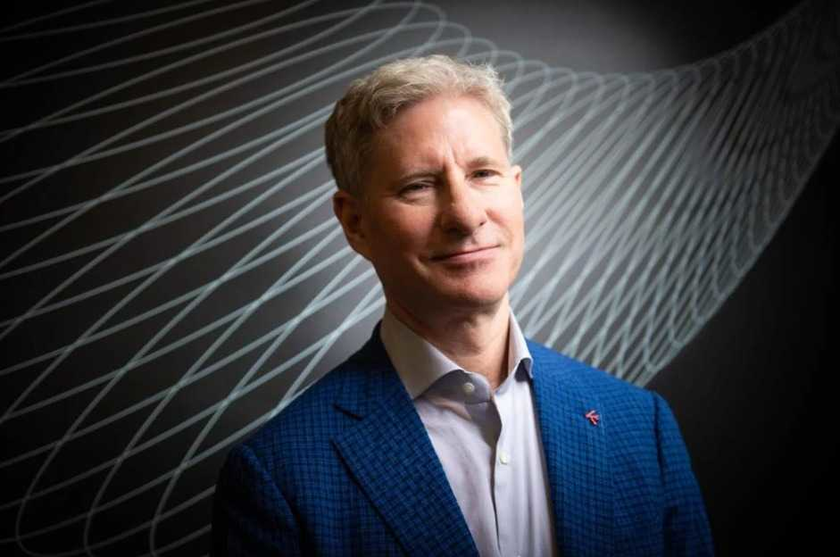
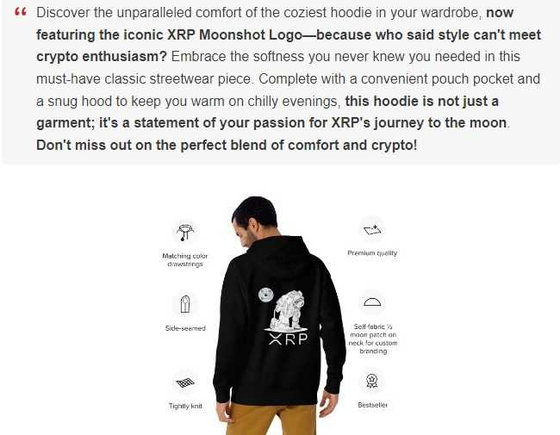









 All while Pfizer—a company with a $2.3 billion criminal fine for fraudulent marketing, bribery, and kickbacks—was given blanket immunity from liability and billions in taxpayer dollars to produce a vaccine in record time with no long-term safety data.
All while Pfizer—a company with a $2.3 billion criminal fine for fraudulent marketing, bribery, and kickbacks—was given blanket immunity from liability and billions in taxpayer dollars to produce a vaccine in record time with no long-term safety data.
























